A Letter From Your “Ex” in Dirtbag, Massachusetts
Dear Isaac:
How. Fucking. Dare you.
There’s a moment from our four years of being and sleeping together, on and off and on repeat until finally over, that I return to often in my mind, in my therapy, in my something like nightmares. It happened toward the very beginning of all that time: The two of us standing on Valencia Street, the sun shining on the sidewalk and us in our twenties, and you turning, instantaneously, into a terrifying embodiment of rage.
You were having a feeling. But you said I had done something wrong, very wrong, and then you made me your target.
Fury. I can remember your face so clearly, though I can’t remember what your mouth was spewing in the way I would come to know so well, not actually raising your voice but doing the words and tone of yelling in a quiet, insidious seethe, not whispered but piped low and steady into my face, inaudible to passersby. After telling me whatever it was you thought I’d done wrong or was wrong with me, you turned and stormed off down the street, rage-stomping away as I stood blindsided and confused, angry somewhere deep down, in a place that I had learned to bury anger at men who might do worse if I didn’t.
Then you showed up at my house later like nothing had happened, denying when I insisted it did, erasing reality in the way that I had been trained to expect and accept as a person who was socialized female (whose senses of reality are rarely to be trusted), who was inwardly trans (never to be trusted), and who was a survivor of extreme child abuse myself (batshit crazy, my perpetrators would tell you still).
What I didn’t know yet then was that you let me off easy that time. After that time, you never walked away, even if I ordered you to, or ultimately begged you to, refusing to leave the stoop outside my house on York Street having chased me home after humiliating me on a birthday where you pulled me aside at my own party to reprimand me in not-so-low tones that time, my friends and a coworker watching, embarrassed; standing outside my studio apartment on St. Mary’s Ave pounding, and then what sounded like kicking, the outer door as I cowered behind it screaming that I was going to call the police after I had broken up with you the first time, waiting until you passed out to flee your house before you woke up and showed up at mine to yell through the door: No. It is not over.
“He writes,” Michael Ian Black says in his totally surreal New York Times review of your memoir, “about [a] bar with an affection that surpasses any he has for his former lovers,” which led me to wonder if Michael Ian Black has ever encountered, or even heard of, alcoholism before: It is pretty famously terrible for relationships, and it doesn’t take staggering leaps of curiosity or inference to question how well a self-described very drunk straight cis white man who treats a bar better than human sex partners in prose might have treated those humans in real life. As it happens, the catalyst for the abovementioned breakup, if you remember, is that you told me that alcohol was more important to you than I was (perhaps you don’t remember; in Dirtbag, you write as though largely baffled about the reasons your relationships were falling apart). Instead, Black categorized you the same way almost every other person I’ve ever witnessed encounter you has—as a lovable scamp, in the drunk and lovable tradition of Charles Bukowski, one of the most famously misogynist famous American writers, whom Black refers to as “soft-hearted” though he famously assaulted one of his partners on-camera.
And this is exactly why I felt something sick and awful explode in my gut when I heard you were writing this book, Isaac: I suspected that you were not going to do the harder, better, more honest and messier work of writing about your own role as an abuser. You were going to erase reality again, and people—celebrities, authors, the paper of record—were going to help you do it, though you and I have been in conversation about it for more than ten years. In early 2011, during a time that my own lies to myself about my okay-ness and history had started to unravel among the threats and stresses of a dangerous job, I called you, drunk; when you called back, I offered to walk to your house, surprising you by making the trek in the cold dark, past my bedtime. You sat in the window of that sweet old studio you were illegally subletting, smoking; we’d both already had a lot of whiskey, but I think we (definitely you) had some more. We made out, in the way we always inevitably did, and then we stopped and I told you that all the time we’d been together, I’d been afraid of you. I remember that you had an arm around me, and my face was in your neck. I remember that I was in my underwear and had hoped that would be disarming. I must have sensed that I could safely tell you, finally—you weren’t emotionally reliant on me because we weren’t partners anymore—or maybe I just had to, but still I said it gently, tentatively: that I was always trying so hard not to set you off. That I’d tip-toed around you, desperate to not incite your always looming, ever unpredictable wrath.
You were the one who called it what it was. You paused, and something seemed to land so solidly that I almost felt it click into place inside you, lying there against your body. “That’s abuse,” you said.
You almost shrugged with the simplicity of it. “I’m listening to what you’re saying, and I’m like: ‘Yeah. And that’s abuse.’”
I sobbed, and let you hold me while I did it. It was the last time I was in my underwear with you.
Here is the thing I can’t believe you dared to do: Write a book that is not just a memoir but a memoir about domestic abuse, and not just write a book that is a memoir about domestic abuse but explicitly reference our relationship in it without so much as mentioning any of this (I guess it’s cool of you to say that I wrote brilliant work about the refugee crisis that serves as a backdrop for some of your realizations, though since you don’t name me or any of said work, you elevate neither; still, it’s better than the treatment of your partner before me, the woman for whom you moved to San Francisco, who gets zero characterization—a plot device of a person, in a book in which you explicitly call out narratives that use women as plot devices). Because this isn’t a he-said/he-said where I have a story you deny or don’t remember. The last time we talked about the fact of your abusing was less than a year ago. I arranged a call with you after I drove to pick up a pizza one San Francisco afternoon and unexpectedly pulled up to a stoplight view of your old McCoppin Street apartment, where I looked up and suddenly, even more unexpectedly, thought: I was raped there.
“It makes sense,” you said when I told you this, “that the abuse would spread into other areas.”
When I got home from the pizza run, I could see it reflected in my boyfriend’s face as I described it to him, the routine. We would be together, eating takeout, or watching a movie, or talking, or walking around, or shopping, and then, if we were alone, or later, if we weren’t yet, you would start berating me. Could be for a way I looked at you, or a thing I said. Often it was that I had spoken to another man, like the sales guy at the bike shop, who we fought about for so long that fourteen years later I still remember his name was JP. You’d accuse me of wanting to have sex with him, or this guy Adam, or this Russian guy whose name I don’t remember; I would assure you that I did not. I wasn’t lying. Even if I had been, what happened next wouldn’t have been okay: You would raise your deep voice, just a bit, or worse, lower it, and it would fill all the space between the walls of the room, darkly sinister, for hours.
Hours.
Yes you did do this thing, you’d say; yes you did want that tall random ginger or mean whatever terrible thing you’d thought I’d meant; yes you did, yes you did, yes you did. Once, you woke me out of a dead sleep in the middle of the night to berate me for wanting to go in the hot tub at the house we were renting that weekend with friends. When they’d all gotten in earlier in the night, I hadn’t gone, whether because you had outright told me not to or because I’d sensed the trouble it would cause I don’t remember. You woke me up anyway. You WANTED to go, though. I don’t remember if I denied it, or if I did want to go in the giant hot tub on the deck and breathe the crisp winter Yosemite air with the people in the house who talked to me like I was a human worthy of agency and respect. I don’t remember if I defended the reasonability of wanting to hot-tub. I do remember that it ended the same way it always ended: with my eventually giving up and shutting down. I would go cold and silent, then usually I would start crying, overwhelmed and exhausted. I spent a lot of time, in the year-plus we were initially together, thinking and even saying out loud to other people that I wished you would just punch me in the face and be done with it. That I would rather be punched in the face than broken down by crazy-making, barely logical accusations and manipulative reality-distortions for any amount of time, much less so much of it. But you never did punch me—except that once, one of the times we’d negotiated “struggle sex,” as we called it, though we had not at all actually discussed punching before your fist hit my face.
Instead, the usual cycle was that you would keep chastising me, and I would eventually stop talking, stop defending, locked hard inside myself, tearful and silent in the galaxy of misplaced rage emanating off your body. And it would be this point at which you’d reach out and start touching me.
This was a story you had. I know, because you told me all the time when I would say all the fights you perpetrated weren’t right: This is what relationships are like. This is maybe a warped iteration of a story I’ve seen in a movie, kind of, where a couple is fighting but then starts fucking; indeed, I’d been in a couple of relationships where we’d argue and then, after we made up, have sex. But I don’t think I’ve ever seen on TV a glamorous depiction where a person’s boyfriend gaslights them at length while they plead that they didn’t do the thing they’re accused of before finally giving up and freezing, and then the boyfriend reaches over, drags their smaller, unmoving body over to his side of the bed, and starts playing with its nipples.
But you did this at least once a week.
My body is different now, but that’s not why I can’t connect to the one that was in that room on McCoppin Street, or in my apartment with you on York Street, or on St. Mary’s. The body that seems like an it when I look back on you putting your hands on breasts I no longer have or between labia ready with adrenaline-soaked wet as I lay on my back, silent and gone, waiting for it to be safe enough, for you to be calm enough, to return to myself.
You were always nicer, after.
“That just tells me how buried this was,” you said when we talked about this earlier this year. You were referring to the fact that six years ago, I interviewed you for a piece originally commissioned for Not That Bad where I was asking people I’d slept with how they learned to honor consent. I considered you one of the good ones. On our first date, we’d gone to a baseball game and you walked me to the train I wanted to take home, drunkenly insisting over and over that I instead come for one more drink at Martuni’s until I agreed, then more-drunkenly insisting over and over at the bar that I come to your apartment to help you finish a short story, continuing to wear me down. But after all those hours and levels of obliterating my boundaries and stated wishes, when we finally did start kissing in your room, I said there was no way I was going to have sex with you and you backed up, looking surprised and maybe a little put out but saying immediately: “Okayyyy.”
That part, that was excellent consent-following by my standards. My standards, obviously, were extremely low. When I told our closest friend in common that I was doing that interview with you for the essay, she’d responded, “Really? Because you told me when you guys were together that you used to have sex with Isaac sometimes so he wouldn’t get mad at you.”
In my core, in my heart, deep in my essence, I was not surprised to roll up to McCoppin Street and think, I was raped there. I knew that and had always known that, of course, down in the place we know things: that a dynamic like that is void of choice, let alone affirmative consent. But I did bury it, because I was socialized to, and because I was afraid of you (“After we break up and you get married to someone else,” you always used to say, like it was adorable though the actual words are a threat, “I’ll still be coming in the back door while they’re at work to fuck you”), and so when the words floated up, even so simply and automatically, from my bones (I was raped there) it felt like a slap, part of me clutching its acculturated pearls—Him? This popular charming white man?—at the same time that it felt like smooth, easy truth. We’d been broken up for thirteen years by then. I hadn’t in that time let myself think it once. I had a story, too: You were emotionally abusive, sure, but on an unrelated note, we did sex together and did it good.
Because it got in, some of it, didn’t it, despite all my protests and resistance—that I had done this to you, made you do this. As a survivor of sex abuse, I’d been primed, subjected to this same kind of brainwashing throughout my development; it was inevitable that at least some of the message would land, however hard I fought it, however hard I’d always been fighting it. How many times can how many people tell you that you’re a fuckbag, that you are the rightful cause and recipient and receptacle of other people’s dysfunction? That the deserved outlet for abuse is You.
I didn’t know how not to believe that if something bad had happened, I must have caused it. It was so, so hard—it is the hardest thing I have ever done, and that includes being small and naked under the hands and bodies of very adult men—to learn to stop believing it.
And now here you are, trying to erase and manipulate reality again. Pretending like nothing happened. Peddling a book about “a more far-reaching vision of masculinity”—are you fucking kidding me? Are your blurbers reading the same book I am, in which a drunk straight guy baldly admits, however charmingly, to using women’s vaginas as single-use self-esteem hits? You don’t have to know specifically, as you and I both do, that some of the women you fucked and ghosted during that time did not find that type of interaction superfun and respectful to be able to recognize that this is masculinity’s same old, women-as-barely-animate-step-stools dehumanization and objectification that is about as progressive as Porky’s. That this is being sold—and bought—in 2022 as cute “male misbehavior,” as the New York Times would have it, is mind-boggling. Soul-harrowing. But that you not only don’t acknowledge the ways you yourself carried on cycles of abusing, in a book about abuse, but also actively state that it never happened?
“Everybody mentions how kind I am,” you write in your conclusion. “It’s hard to be anything but kind or nice when you’ve been raised on a steady dose of religion and abuse. The principle of turning the other cheek embodied in the physical act of turning one’s cheek.”
This is not a sin of omission, but an outright lie. And a lie that you know is a lie. I know it, too, and this time, I will not shut down. I am still recovering from the violence you inflicted, Isaac, but I am way beyond just lying quietly and taking it.

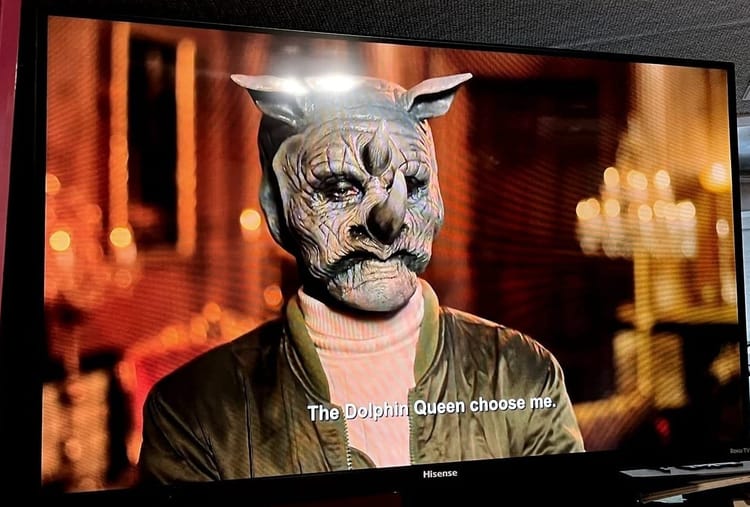
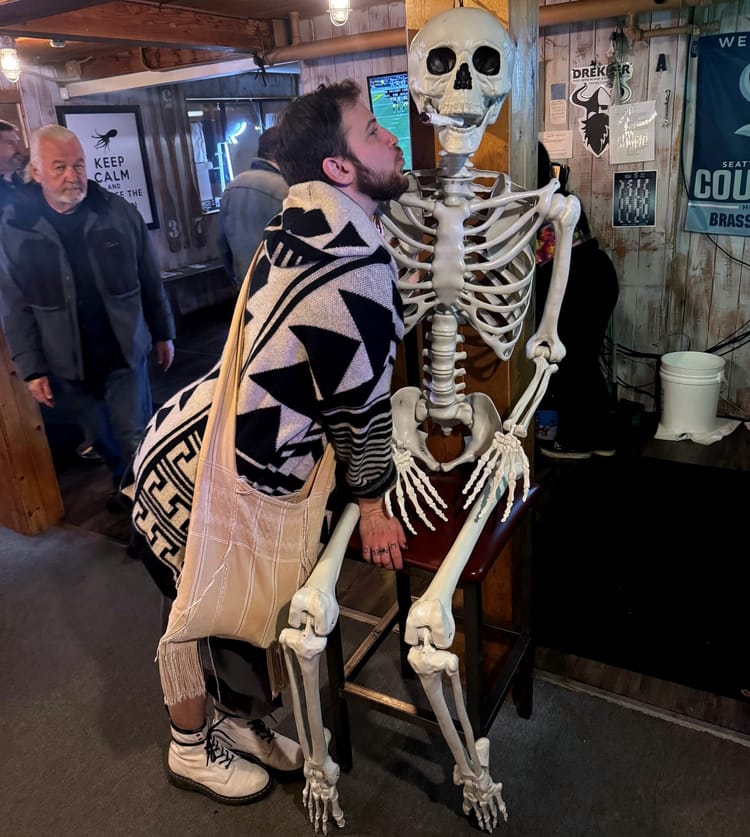
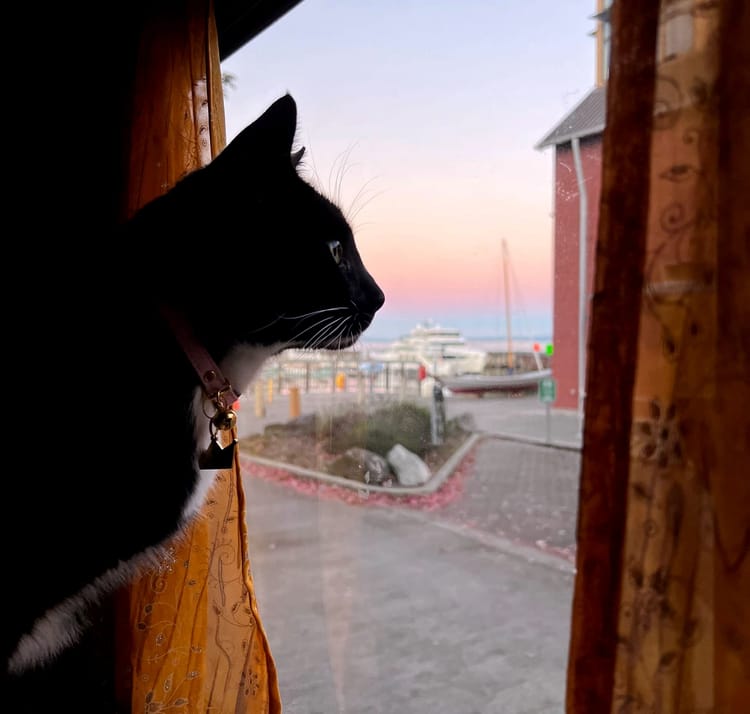
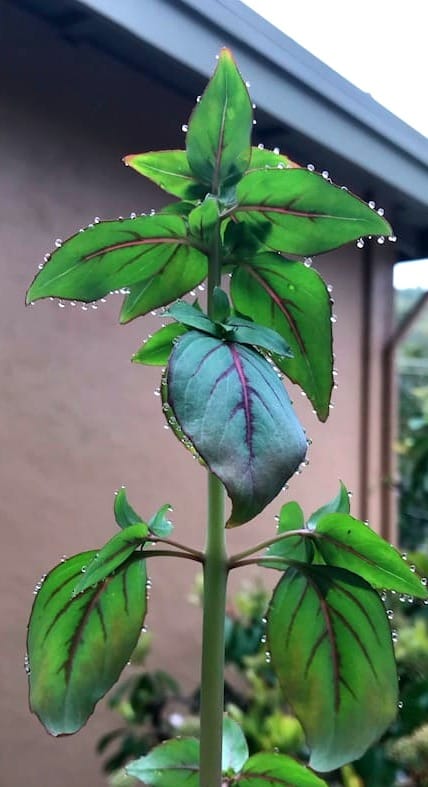
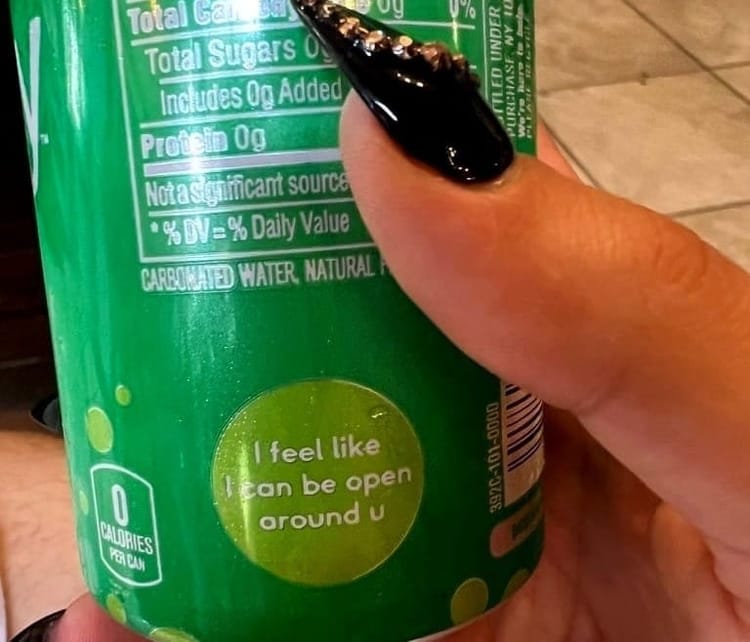
Member discussion